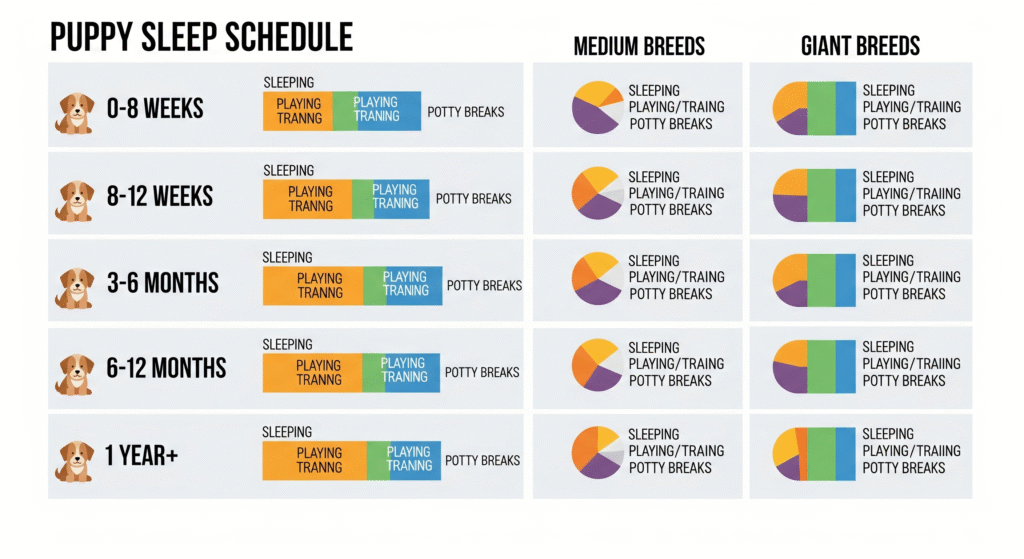
Raising a puppy is exciting, but it also comes with a lot of questions—especially about sleep. Puppies need plenty of rest to grow healthy and strong, but the right amount can vary based on their age and breed. Understanding your puppy’s sleep needs will help you create a routine that keeps them happy and well-rested.
Why Puppy Sleep Is So Important
Sleep is when a puppy’s body grows, muscles repair, and the brain processes everything they’ve learned during the day. Without enough rest, puppies can become cranky, hyperactive, or even more prone to illness.
Puppy Sleep Schedule by Age
Every puppy is different, but here’s a general guide to how much sleep they need as they grow.
Newborn to 8 Weeks
Puppies this young sleep up to 20–22 hours a day. They wake only for feeding and short moments of interaction before dozing off again.
8 to 12 Weeks
At this stage, most puppies sleep around 18–20 hours a day. They’re more active during their awake time but still need lots of naps to recharge.
3 to 6 Months
Puppies usually get about 16–18 hours of sleep daily. They begin to adapt to a more regular schedule but still benefit from quiet rest periods.
6 to 12 Months
Older puppies typically sleep for 14–16 hours a day. Large breeds may continue to need more sleep than smaller breeds.
How Breed Affects Puppy Sleep Needs
Some breeds are naturally more active, while others are more relaxed. For example, working breeds like Border Collies and Belgian Malinois may take shorter naps but need more mental stimulation. Giant breeds like Great Danes or Saint Bernards often sleep longer, even into adulthood.
Creating the Perfect Sleep Environment
To help your puppy sleep better, provide a comfortable bed in a quiet space, keep a consistent routine, and avoid loud noises or late-night play sessions. Crate training can also help them feel safe and secure during rest times.
Signs Your Puppy Isn’t Getting Enough Sleep
Watch for signs such as constant barking, nipping, or trouble focusing during training. If your puppy seems unusually tired or restless, consult your veterinarian to rule out any health issues.
Final Tips for a Healthy Sleep Schedule
Be patient as your puppy adjusts to their new home and routine. Stick to regular feeding, potty breaks, and playtimes so they naturally fall into a healthy sleep rhythm. With time and consistency, your puppy will learn when it’s time to play—and when it’s time to dream. 🐶💤 PetsDogPuppy
